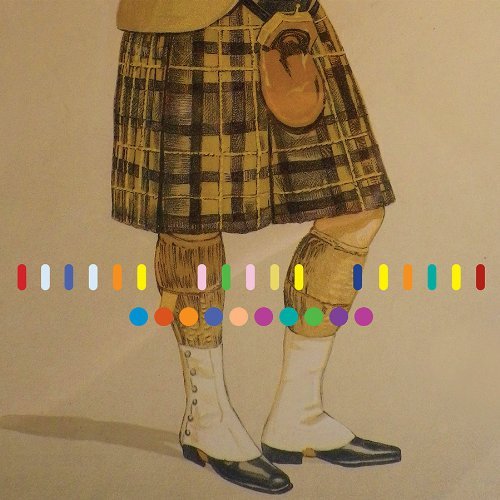
Future Bible Heroes
Partygoing
Release Date: Jun 4, 2013
Genre(s): Pop/Rock, Alternative/Indie Rock, Indie Electronic, Indie Pop
Record label: Merge
Music Critic Score
How the Music Critic Score works
Buy Partygoing from Amazon
Album Review: Partygoing by Future Bible Heroes
Satisfactory, Based on 8 Critics
Based on rating 8/10
It’s been ten years since the last Future Bible Heroes album, but for those in the know, it's hardly felt like a drought, as the group is merely a re-skinned version of ultra-prolific songwriter Stephin Merritt's myriad other outlets, which include Magnetic Fields, Gothic Archies, and the 6ths. Originally conceived as a one-off collaboration between Merritt and popular DJ and ex-Figures on a Beach keyboardist Christopher Ewen, the addition of longtime Magnetic Fields collaborator Claudia Gonson in 2002 officially brought the group into Merritt's indie pop empire, and with their heady blend of kitschy electro-pop and darkly funny, Brill Building-inspired tales of heartbreak, the trio really began to cook. 2013's Partygoing finds Gonson and Merritt sharing lead vocals, with Ewen peppering the tracks with strategic blasts of Tiki-fueled ambiance.
Based on rating 7/10
Some critics and fans greeted the Magnetic Fields’ 2012 album, Love at the Bottom of the Sea, as a potential return to past form just based on the fact it was performed on synthesizers. The instrument was once prominent in the Magnetic Fields sound but lessened on their epic 69 Love Songs (1999) and disappeared from some of the albums after that. Of course Love at the Bottom of the Sea wasn’t a retreat, the songs were a bit madcap and their use of synthesizers unconventional.
Based on rating 6.3/10
Stephin Merritt is a master ironist, but at this point he's danced between expectation and reality so many times it's easy to get turned around. The Magnetic Fields' 1999 69 Love Songs was a colossal triple album that demonstrated the power of the individual song, an exercise in Tin Pan Alley-style craft and artifice that could generate real emotions. That effort's subsequent "no synths" trilogy tweaked misconceptions about the author's voice (2004's entirely Merritt-sung i), Jesus and Mary Chain-level fuzz (2008's Distortion), and organic folksiness (2010's Realism).
Based on rating C+
After ten albums with The Magnetic Fields and a whole host of equally productive side projects, critics have pretty much stopped bothering with the actual content of Stephin Merritt’s tunes, assuming that after the requisite six month break between Merritt-related projects, the tracks will still be charged with the compelling characters, poeticism, and biting humor as they were before his brief respite (and they often are). Conversation surrounding Love At The Bottom Of The Sea instead centered on Merritt’s bold and shocking choice to return to the bargain bin keyboard sounds of early Magnetic Fields efforts after years of trading in the far more practiced and professional sonics of his most beloved records. What this conversation ignored was Future Bible Heroes, the twee-as-funk songwriting partnership between Merritt and Boston-based indie pop scene vet Christopher Ewen.
Based on rating 2/5
Stephin Merritt's songs still favor the simple structures and clever rhyme schemes of prewar American pop, which is what makes the best Magnetic Fields albums so impressive: Even in the context of routine, he manages to surprise. Lately, though, he has made a routine of surprise, hopping from one self-conscious experiment (songs featuring distortion) to the next (songs starting with "I"). Here he revives synthpop project Future Bible Heroes, armed with yet more rhyming miniatures about hopeless love and the emotional safety of being wasted, sung by him and Claudia Gonson in a deadpan somewhere between flight attendant and bank clerk.
Based on rating 2/5
Pity the partygoer who winds up clinking cocktails with Stephin Merritt, the doyen of the dour-faced. The third album and first in over a decade by Future Bible Heroes, the baritone-voiced singer/songwriter's synth band with musician/producer Chris Ewen and singer Claudia Gonson, could be a party album for people who hate parties. "Partying" essentially serves as a jumping off point and foil for Merrit's signature acerbic wit and aura of deflated romance, an approach reminiscent of his concept-oriented outings with the Magnetic Fields.
Opinion: Excellent
“I often find when I’m feeling low / A drink is just the thing / It lights my mind with that bright brown glow / And makes me want to sing.” If that’s not a signature Stephin Merritt sentiment, I don’t know what is. “A Drink Is Just the Thing” leads off “Partygoing,” the terrific new album by Future Bible Heroes, one of Merritt’s long-running but underserved musical projects that also includes his Magnetic Fields bandmate Claudia Gonson and Cambridge’s Chris Ewen, a DJ and overall man about town. It’s the trio’s first album since 2002’s “Eternal Youth” and finds them mining familiar territory, specifically that delicious divide between Ewen’s exuberant synth-pop soundscapes and Merritt’s droll lyrics.
Opinion: Very Good
Will Stephin Merritt ever write an album that doesn’t sound like a suicidal afterthought on a sunny day? Whenever the prickly songwriter meanders back onto the map with a new release from one of his myriad of projects, the conversation tends to pivot around some variation on this question. He’s expanded his musical range in recent years, penning a rock record and a folk album, but his thematic concerns remain largely the same. At this point, what do we expect from a guy who started a band to write songs to accompany a book series whose opening line is “To Beatrice- darling, dearest, dead”? With each new release it seems we further justify our reasoning not to accept a party invite from the morose Merritt (regardless of how much booze he might provide).
'Partygoing'
is available now

